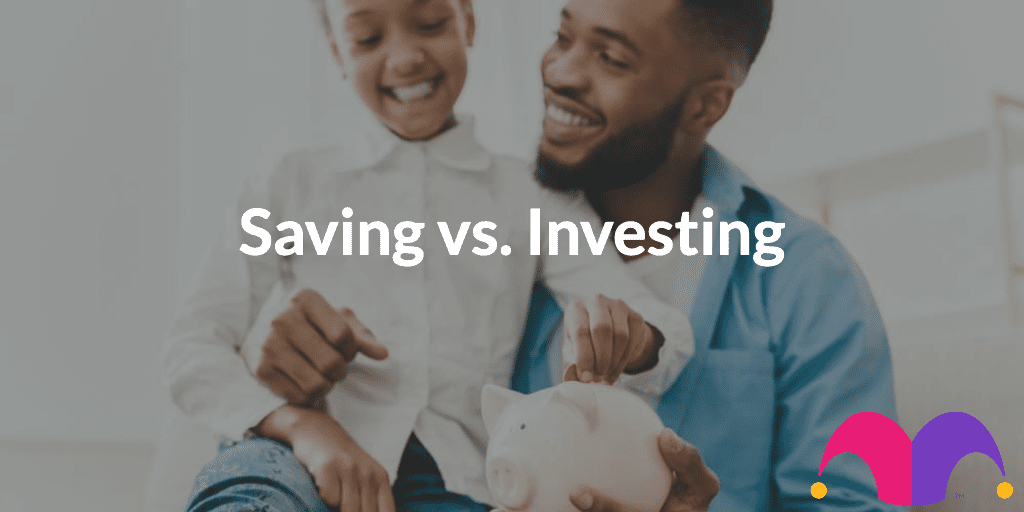Saving and investing are two approaches for reaching financial security. Cutting back on spending now – and instead choosing to save or invest – can help you to build wealth and provide security for your future.
The main difference between saving and investing is the form in which your unspent money is held. Saving involves putting cash to one side for emergencies or the future. Investing involves using your cash to purchase other assets that will hopefully produce an income or profits in the future.
Let’s break it down.
Saving vs. investing: what’s the difference?
While saving and investing share a few likenesses, they are different in most ways. A key difference is the type of assets in each of the two accounts.
Generally speaking, saving involves bank products such as savings accounts, certificates of deposit (CDs) and money markets. Conversely, investing involves stocks, bonds, ETFs and mutual funds.
Below are some of the main differences between saving and investing:
| Saving | Investing | |
| Account type | Bank (e.g., savings, CDs and money markets) | Brokerage (e.g., stocks, bonds, EFTs and mutual funds) |
| Return | Comparatively low | Could be higher or lower |
| Risk | Close to zero on FSCS-insured accounts | Varies by investment, but there is a risk of losing some or all of your investment |
| Time horizon | Short | Long ‒ usually five or more years |
| Difficulty | Comparatively easy | Comparatively more complex |
| Protection against inflation | A small amount | Could be a lot |
| Expensive? | No | Could be, depending on the amount invested and any taxable gains |
| Liquidity | High, unless CDs | High, though the amount may vary depending on when you choose to withdraw your capital |
When should you save?
Saving is a good idea when you have an income but very little spare cash. It’s commonly advised to save enough money to cover your living expenses for three to six months. Such savings can then cover you should you lose your job or experience an unexpected financial emergency.
Saving can also work well if you have short-term financial goals, such as purchasing a car or home, funding a large event or holiday, or paying university fees. If you will need to access your cash within five years, saving will be more appropriate than investing.
If you have high-interest debts, it can be tempting to pay these off before you begin saving. However, regardless of your debts, it can be dangerous to neglect building an emergency fund. It’s ideal to save money as well as paying off your debts.
When should you invest?
If you have an income, an emergency savings fund and no high-interest debts, you could consider getting started with investing.
It’s important to remember, though, that investing can be quite volatile in the short-term, although we believe that over time, it’s a great way to build wealth.
If you have an emergency cash fund, this can help to manage the ups and downs of investing. Rises and falls are less worrying if you have enough cash put by to live on for six months if there’s an emergency. Without this backup fund, an emergency may prompt you to sell your investments at a bad time and potentially lose money.
If you’re ready to start investing, take a look at our top brokerage accounts in the UK to find the right account for you.
[KevelPitch adtype=151]
